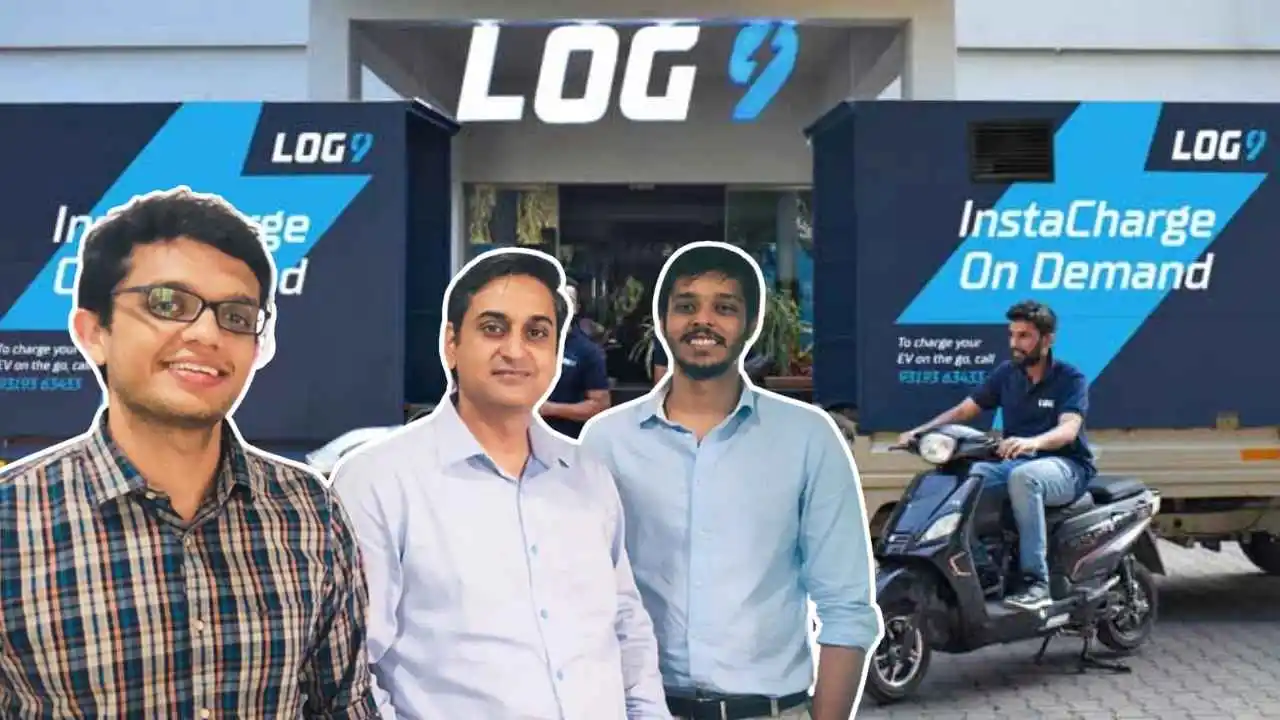In 2015, Log9 Materials burst onto the Indian startup scene with a bold vision: to revolutionise battery technology and power India’s electric vehicle (EV) dream. Founded by Dr. Akshay Singhal, and joined by co-founders Kartik Hajela and Pankaj Sharma, Log9 aimed to outshine Chinese battery giants with indigenous innovation, eco-friendly chemistries, and a full-stack approach to battery manufacturing.
But a decade later, Log9 stands as a sobering example of how quickly fortunes can change in India’s fast-moving startup ecosystem. Offices are shuttered, layoffs are rampant, and the company is battling mounting debt and legal troubles.
The Rise: Big Promises, Big Backers
Log9’s early days were marked by excitement and investor confidence. The company’s aluminium-air and graphene-based fuel cells promised to be cheaper, safer, and more sustainable than traditional lithium-ion batteries. By 2019, marquee investors like Peak XV (formerly Sequoia Surge), Exfinity Venture Partners, and Amara Raja Batteries had pumped millions into Log9.
The startup was hailed as India’s answer to Tesla’s battery ambitions, with the potential to make India self-reliant in EV battery tech.
The Fall: Strategic Missteps and Mounting Losses
Confused Technology Bets
Log9’s downfall began with a series of strategic pivots. The company shifted from its original aluminium-air fuel cells to lithium-titanate oxide (LTO) batteries-a niche chemistry that, while safer and faster to charge, was costly, had lower energy density, and performed poorly in India’s hot climate.
While LTO batteries attracted some OEMs, end-users found them expensive and unreliable, leading to dissatisfaction and poor adoption.
Overambitious Business Model
Log9 tried to control the entire battery value chain-from cell manufacturing to battery packs to EV leasing. But building a ₹150 crore cell factory in Bengaluru faced delays due to visa issues for foreign experts and late machinery imports. Production only began in April 2023, too late to make a significant impact.
To generate revenue, Log9 pivoted to EV leasing, partnering with Omega Seiki Mobility and Quantum. This move temporarily boosted revenues:
- FY22: ₹25.5 crore
- FY23: ₹74.4 crore
- FY24: ₹110.3 crore
But losses ballooned even faster:
- FY23: ₹88.4 crore
- FY24: ₹118.6 crore
- Debt: Over ₹200 crore
The leasing model masked the failing core battery business, which never became profitable.
Technology Pitfalls: When Innovation Backfires
Log9’s core technology failed to deliver on its promises. Customers reported poor EV range and overheating, especially during Indian summers. The company could not compete with the economies of scale of Chinese manufacturers, making its batteries expensive and uncompetitive.
The Breaking Point: Layoffs, Legal Battles, and Facility Closures
By late 2023, Log9 began mass layoffs. Offices in Hyderabad, Jaipur, Mumbai, and Chennai were closed. Only skeleton staff remain in Bengaluru and Delhi. Legal battles with customers and financiers are mounting, and one co-founder has exited. The company is now selling off assets to survive.
Lessons for Indian Startups
- Tech Before Scale: Prove your technology before chasing aggressive growth.
- Revenue ≠ Profit: Top-line growth is meaningless if the core tech is flawed.
- Know Your Market: OEM excitement does not guarantee end-user adoption.
- Deeptech Needs Patience: Venture capital may not suit capital-intensive, slow-to-market sectors like deeptech.
